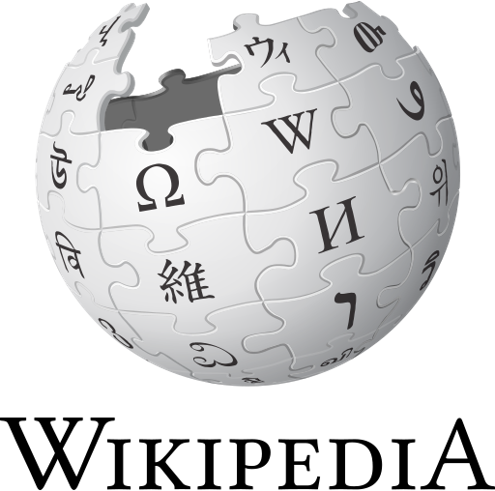In a futuristic world, a strict regime has eliminated war by suppressing emotions: books, art and music are strictly forbidden and feeling is a crime punishable by death. Cleric John Preston (Bale) is a top ranking government agent responsible for destroying those who resist the rules. When he misses a dose of Prozium, a mind-altering drug that hinders emotion, Preston, who has been trained to enforce the strict laws of the new regime, suddenly becomes the only person capable of overthrowing it.
https://www.imdb.com/title/tt0238380/
| Category | Details |
|---|---|
| Directed/Written by | Kurt Wimmer |
| Produced by | Jan de Bont, Lucas Foster |
| Starring | Christian Bale, Emily Watson, Taye Diggs, Angus Macfadyen, Sean Bean, Matthew Harbour, William Fichtner |
| Production Companies | Dimension Films, Blue Tulip Productions |
| Release Date | December 6, 2002 |
| Running Time | 107 minutes |
| Country | United States |
| Budget | $20 million |
| Box Office | $5.3 million |
My review
The title differs significantly in meaning between the Japanese title ‘REBELLION,’ which means ‘rebellion,’ and the original title ‘Equilibrium,’ meaning ‘balance.’ This contrast adds a nuanced layer to the film’s theme. Given that both titles use relatively Unusual words, it’s unclear if they were the best choices. While the Japanese title is straightforward, it also somewhat gives away the plot, which could be seen as a drawback.
Although the dystopian near-future setting is common now, given that this film was made over 20 years ago, its content and visuals were likely innovative for its time. The engaging content and plot lived up to the impressive visuals. Not only in imagery, the film also introduces numerous neologisms, contributing to its unique world-building.
In terms of the world line, maintaining a world without war was seen as “peace”, and achieving equilibrium in the world was achieved by administering medicine (prosium). The story revolves around the relationship between a person who regains human emotions without taking medicine (emotional rule violator), and the crackdown on that person (klarik).
The main character’s job is Clark. The literal translation is “pastor/clergyman,” and the name seems to have come from its appearance. However, the fact that what they are doing is completely different from what they do today suggests that their world lines are different. The purpose of the mission was to “eradicate the roots of human cruelty” and “eradicate the expression of emotion.”
The film features some action sequences that are exceptionally stylish and impressive. Due to its futuristic setting, the combat style is both stylish and aggressively innovative.
Just looking at the action, The action somewhat reminds one of ‘The Matrix,’ and given the timeline of the film’s release, it likely drew some influence from it. The worldview is similar to that of “Divergent,” which has a futuristic feel and a sense of restraint and confinement, but this work may have been influenced by this work because a considerable amount of time has passed since then. There were moments where the film seemed overly optimistic or unrealistic in its portrayal..
“Gattaca” was in 1997.
“The Matrix” was in 1999.
“Divergent” was in 2014.
I experienced some dissonance with certain aspects of the film’s world-building. Unlike other similar dystopian works where language and script play a crucial role in human ideology, this aspect wasn’t explored in ‘Equilibrium’ as it was in works like ‘The Book of Eli’.
The focus of the world’s equilibrium was how to prevent human emotions from returning. The coined term “emotion rule violation” is quite interesting.
If that were the case, it would be likely that they would create a new prison-like facility in a part of the area that had been completely destroyed and try to control it from there, but this work was different. Perhaps the setting of the work is deliberately made too soft.
Furthermore, the management system is weak in that the administration of medicines is left to the individual. Normally, it would seem that the administration of medicine would be a prerequisite for passing through a gate somewhere (“In TIME” 2011, there was a machine to check the time at the entrance to the workplace). It’s a missed opportunity that the film doesn’t delve deeply into how the administration of the drug is monitored or how emotions are detected.
This work can be seen as imagining a future without war, but I was left questioning whether a world without war, achieved at the cost of human emotion, can truly be called peaceful.
Impressive reviews from other watchers
Positive
A rare dose of originality
If there is one complaint about the Hollywood system that rings true, it is that Hollywood seems quite bereft of ideas. Then films like Equilibrium come out and remind us that it’s not that we’re out of ideas so much as we’re just not trying hard enough. Not that Equilibrium is inherently new – it borrows a fair few plot concepts from Farenheit 451 and Nineteen Eighty-Four, to name the most prominent examples. It is the way in which the old ideas are combined with the new that makes Equilibrium a fun and underrated experience.
The premise is simple enough. In a kneejerk reaction to the horrors of World War Three, the survivors outlaw what they blame the chaos upon. Their own emotions, in other words. As the lead character has a series of revelations, we begin to understand that in so doing, they have also outlawed much of what gives our existence a point. In the bland, lifeless world that the law-abiding citizens inhabit, everything that the audience takes for granted to make their lives worthwhile is being systematically destroyed. Shades of the America of today, the whole principle of throwing the baby out with the bathwater, are shown in a stark horror show.
I’ve read people comparing this film to The Matrix or its sequels. Where The Matrix series’ fights were overlong, and often with no payoff, Equilibrium’s fights are short and to the point. The difference this makes is, needless to say, as uplifting as Preston’s fight to regain the humanity he stripped so many others of. Instead of having fights with no emotional connection to the characters, the story is given sufficient development to make the audience care what happens.
The film is not entirely without flaws. The Prozium element seems to have been written with no regard for the facts about psychiatric medicines. Their purpose is not to suppress emotion at all, but to balance the chemical system of the brain in order to give the patient better control of them. Sure, they’re not without problems of their own, but exaggerating them like this does not do the portion of the community that needs them any favours. That aside, however, the on-camera struggle is one of the most intriguing I’ve viewed for some time. Ergo, this minor plot problem is made up for. The only other real complaint I have is that the film could have done with a little more footage to give some characters more of a chance to develop.
I gave Equilibrium an eight out of ten. It’s not the best negative science fiction you’ll ever see, but it is enough of a breath of fresh air that this won’t entirely matter. If the MPAA made more films like this, it wouldn’t be suffering the constant financial dire straits that it so loves to blame everyone else for.
https://www.imdb.com/review/rw0958624/
Negative
A waste of their money and my time
It looks good.
Well, that’s the positive aspect of this film out of the way.
Quite simply, it’s amazing that this film even got made, being nothing more than a sorry, derivative ragbag of pilfered ideas, with not a single one of its own to justify its existence. The nearest one can come to describing this Frankenstein monster of a travesty is “1984” crossed with “The Matrix”, and the latter wasn’t exactly blindingly original to begin with.
As if this isn’t bad enough, the film is loaded with inconsistencies and plot holes, all shoddily papered over in the name of convenience as well as scenes and dialogue so hackneyed you can see them coming a mile off (and if you can’t, you should really see more films. Preferably good ones). I actually uttered one line seconds before the character did, and had to stifle risible laughter when Preston came face to face with the itty bitty, cutesy-wutesy puppy. (In this scene, please note that the budget having probably been spent all on bullets didn’t seem to stretch to any sort of animal training, as it relies on actors pointing off-camera and saying, “Stop it! It’s getting away!” and reaching down, most unconvincingly).
Laughter, in fact, is the only realistic response to the majority of this farrago, if only to stave off the angry realisation that your time is being wasted. You want laughs?
AND HERE BE SPOILERS (although it’s kind of hard to spoil something that’s already this rank, IMHO)
In the lead up to the “climactic” fight, one character warns Preston that, should he get too close to”Father” (highly original name for a “Big Brother” figure, eh? Lucky they didn’t call him “Uncle” or “Second Cousin Twice Removed”) he’ll be shot down by snipers. When the spit hits the fan, however, there are no snipers, not a one: only an endless parade of policemen, doing what they do best throughout: dying. Honest, these guys, despite their fierce get-up, turn out to be the most useless, butter-fingered cannon-fodder since the Imperial Stormtroopers in the original “Star Wars” (and countless other Z-grade imitations). Once you realise that they couldn’t hit a barn door at ten feet and that their tactics seem to consist of merely lining up to get gunned down, you’re left with no tension, nothing at stake and only the tedious sight of moronic sitting ducks being blown away, noisily, time and time and time and time again.
It doesn’t help that, having walked Preston into a trap and taken his weapon, they don’t think to search him for anything else, leaving him free to conceal guns and an abundance of spare ammo, as well as a complicated reloading mechanism…all up his sleeves. Good thing nobody shook his hand.
This is the film’s idea of a “twist”: a development so implausible, so gobsmackingly unlikely that it’s an insult to any intelligent film-goer.
“Equilibrium” is the kind of film so shoddily made and yet so pretentious, it just cries out for a parody, or to be taken apart on any of the countless “Bad Film” sites that are on the net. It meets all the criteria for a Bad Film, that’s for damned sure. It’s one thing to be unoriginal only a certain number of plots in the world, yada yada but it’s another thing to be quite so offensively cack-handed about it.
https://www.imdb.com/review/rw1422488/






